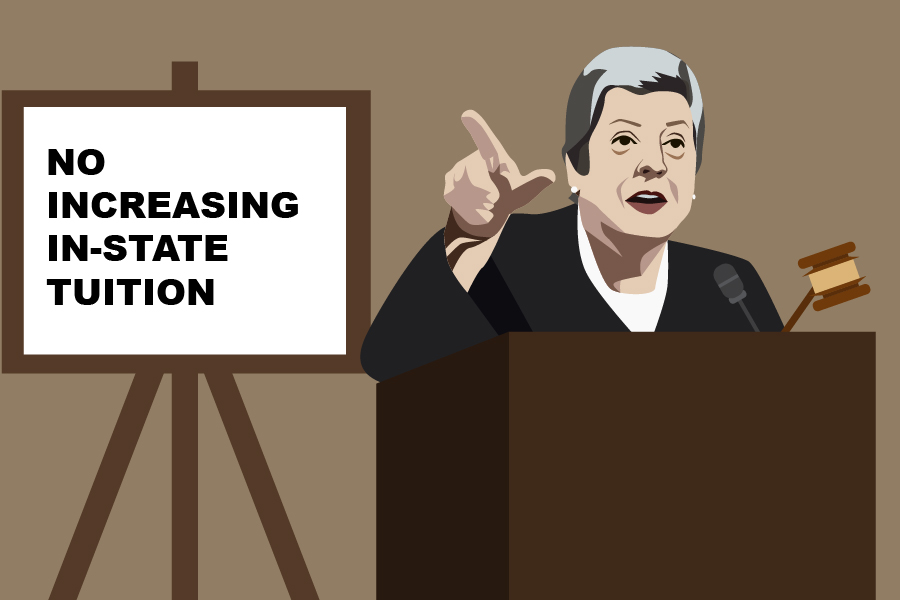
UCs reconsider tuition hikes for 2018-2019 year
With the University of California consisting of 10 prestigious universities, hundreds of thousands of applicants compete against one another to try to get into at least one. In 2015, there was a low percentage of admitted students from the state of California, causing the UCs to significantly increase their in-state enrollment. Nonetheless, acceptance rates are dropping yearly. Since 2000, around 90,000 more students have gotten into a UC as a way to give more young adults the opportunity to get a degree from a UC. The issue resides now in the fact that many more students are being admitted, and tuition hikes are being considered. On May 1, UC President Janet Napolitano decided to not discuss this issue at the May meeting with the UC Board of Regents and to push off the 3 percent increase until consideration for the 2018-2019 year.
“While UC appreciates the 3 percent increase, that amount remains far below what is needed to address critical issues such as unprecedented enrollment growth, increases in instruction and student services, and pressing deferred maintenance needs,” said Stephanie Beechem, a media relations spokesperson for Napolitano, via email. “The 3 percent increase is also less than UC expected under the terms of an agreement reached with the governor in 2015, which assured the university a 4 percent base budget increase for each of the following four years.”
Advocacy efforts, led by students and faculty, hope to secure more funding for the UC system in order to help those who pay their own tuition and those who cannot afford it. Beyond this 3 percent increase base, the UC structure intends to secure $140 million in additional state funds. Advocacy efforts are supposedly making a difference, as Napolitano claims, since this momentum may even cancel out the need for increases in tuition.
“They have tried to raise tuition three times in my four years here at Davis, like that is all you need to know when considering what a consistent, dominant problem it has been in my college experience,” said Ryan Calbreath, a fourth-year political science and economics major. “As you know, they have proposed a tuition hike and punted it until next year. On the surface, that is a good thing, until eventually it actually happens.”
Defensive actions include strikes on campus, like the walkout that took place earlier this year when the initial idea of a tuition increase was brought up. Calbreath has experienced the direct results from the UC system as it has slowly tried to raise tuition over the few years he has attended Davis. He described the attempt in comparison to a boiling pot of water, with tuition becoming much more expensive over time, differentiating how much students paid their freshman year compared to their senior year. Although the tuition increases can be viewed as miniscule in the short term, they add up exponentially when looking at the bigger picture.
“Since the year 1993-2000, there was a 318 percent increase in administrators, but 4.5 percent decrease in full-time paid professors, making us super top-heavy,” said Antoine Menager, a third-year economics and political science major. “We are controlled by a board of trustees. Unfortunately, we do not see any of that money directly — only the people at the top do — which really does help us realize how top-heavy the UC system is.”
As Napolitano claimed earlier, there is a need for more funding, but as Menager stated, the question many UC attendees now have is what this extra money is being put toward.
“With such little representation, it is much more difficult to have a voice heard when there are so few ways to get through this UC organization,” Menager said. “When there is an actual complication, the people that are the middle ground between students — and the men and women who have final say — just blame the governor for not enough funds.”
Therefore, budget cuts are oftentimes compensated by students, leaving them to face the repercussions. Rather than getting more out of paying more, students will instead have larger class sizes, less attention in discussions and increased tuition.
Written by: Lauren Tropio — city@theaggie.org



